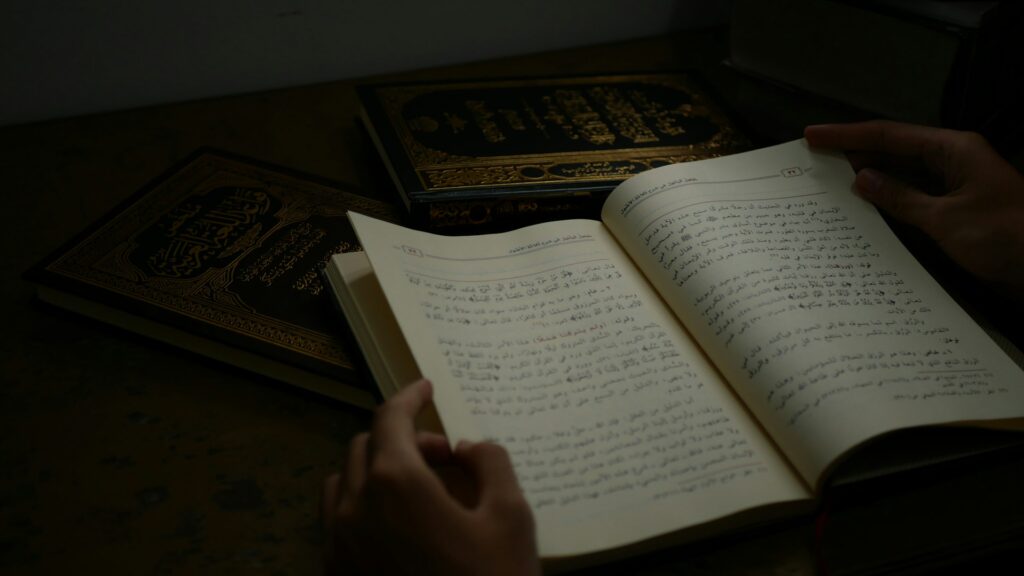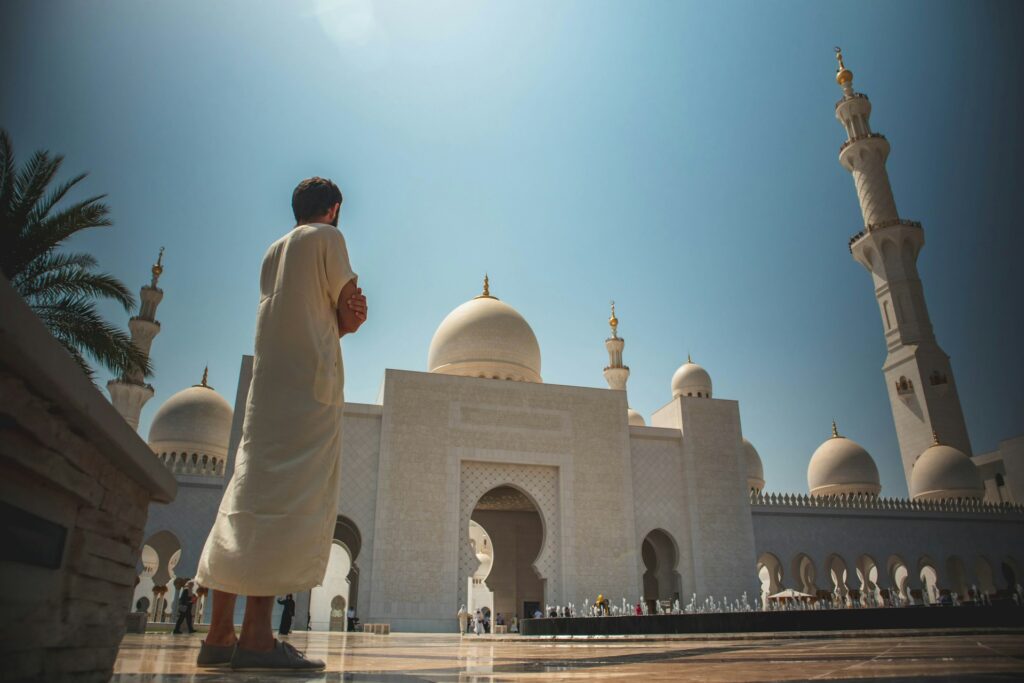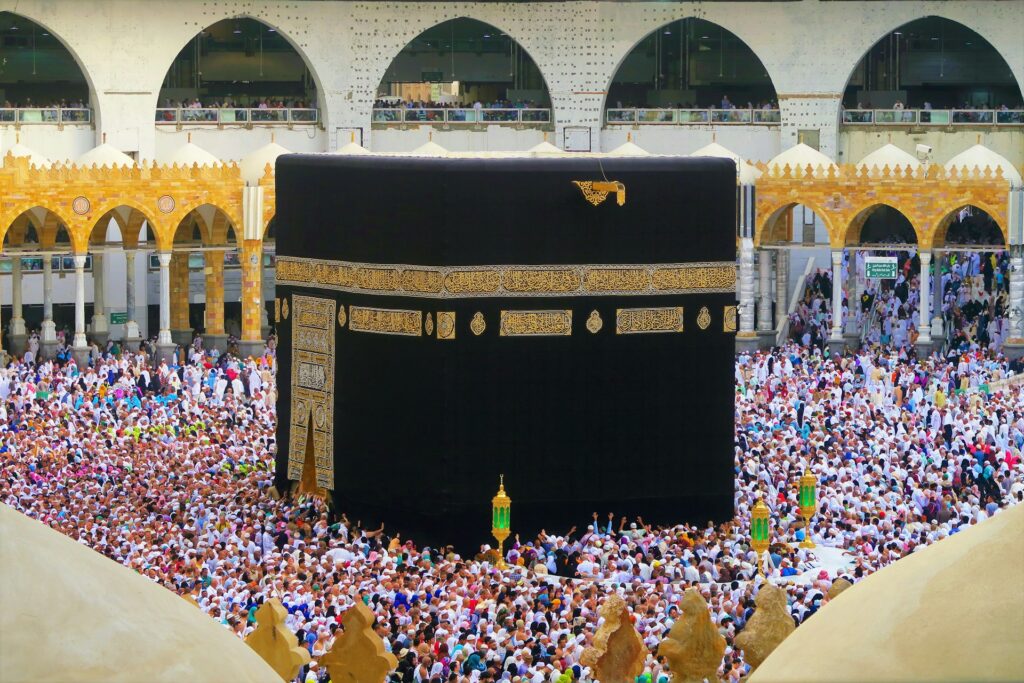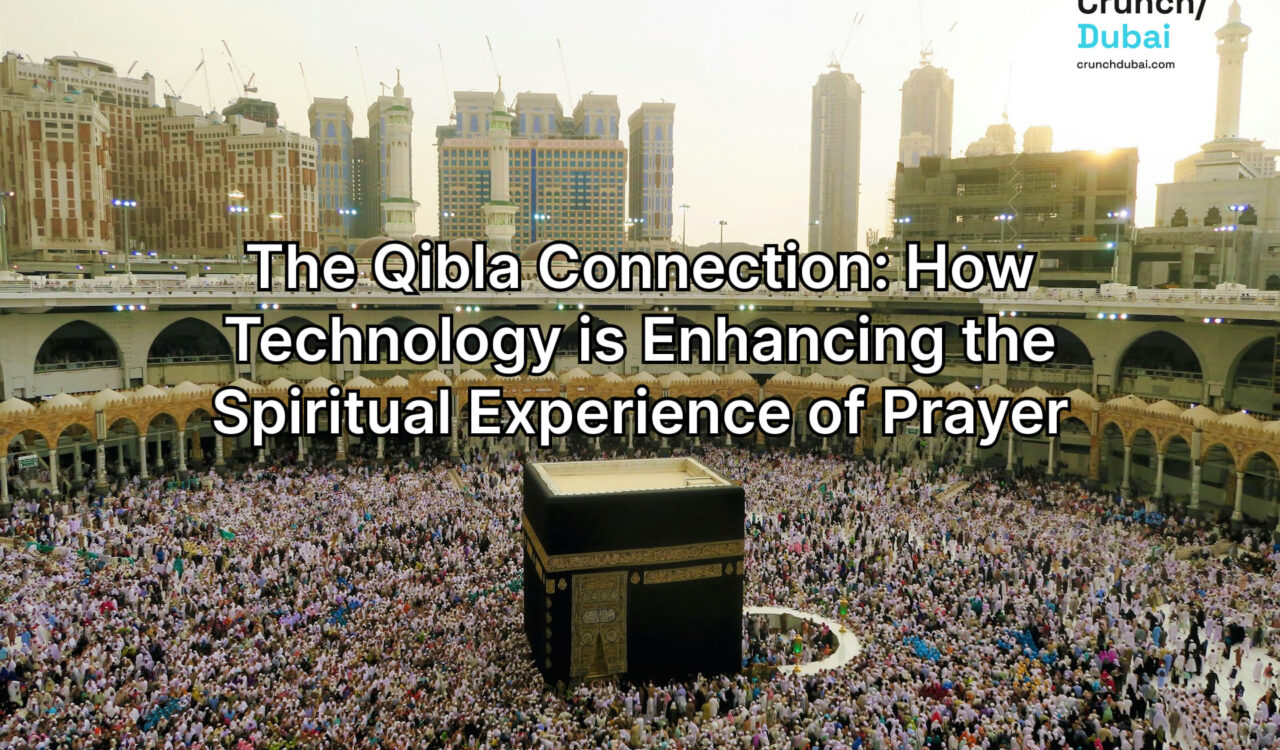Qibla is a very special spiritual direction for Muslims worldwide. It refers to the direction in which the Muslims turn at the five obligatory daily prayers, toward the holy Kaaba in Mecca. However, how do Muslims ensure that they face the correct direction in a dynamic and globalized world? The answer lies in Qibla-finding technology, where innovation goes in hand with tradition to better the religious experience of prayer.
Qibla in Islamic Prayer: Significance

Facing the Qibla forms an integral aspect of prayer in Islam. It is symbolic, denoting unity and subjugation to Allah as people around the face one direction to pray five times a day. In essence, Qibla is not a direction but a spiritualist dimension which spells out the attainment of a bond with the holy history and learning of Islam.
The importance of facing the Qibla is emphasized in the Quran, where Allah says:
“Indeed, We see the turning of your face to the sky; and We will surely turn you to a Qibla that you will like. So turn your face toward al-Masjid al-Haram. And wherever you [believers] are, turn your faces toward it [in prayer].” (Quran 2:144)
The verse shows the importance of Qibla as a unifying symbol for the Muslims, turning them toward the Holy Mosque in Mecca and turning with everybody upon the worship of Allah.
Traditional Methods of Qibla Direction
Traditionally, Muslims relied on natural signs and astronomical knowledge to get an indication of Qibla. They used the sun, stars, and moon to know the direction of the Ka’ba in Mecca. The learned scholars and astronomers of Islam devised sophisticated instruments, like the astrolabe, for this purpose. In fact, something indicating Qibla, namely the Mihrab—a prayer niche showing the direction of the city of Mecca—was designed in the mosques.
These traditional methods, however, were not always available or correct for Muslims living far from Mecca or in areas with little visibility of the relevant heavenly bodies. In this regard, modern technology has stepped in with easier and more accurate solutions.
The Rise of Modern Qibla-Finding Technology
The discovery of the Qibla has never been more expedient and accurate with the coming of electronic methods. Most of the electronic, computation-based Qibla finders today are used in form and digitally. All of them usually start their working by using magnetic north to estimate the Qibla direction regarding a user’s current position or place.
Online Qibla direction tools have equally been developed, whereby a user only needs to input their location to find the Qibla. Such websites and applications as Qibla Finder Online and Google Qibla simplify things for any Muslim to obtain Qibla directions from anywhere in the world.
| Qibla-Finding Tool | Description |
|---|---|
| Qibla Compass | A physical compass that points towards the Qibla direction based on the user’s location. |
| A smartphone app that uses GPS and compass to provide real-time Qibla direction. | |
| Online Qibla Finder | A website that allows users to input their location and provides the Qibla direction. |
| A feature within Google Maps that shows the Qibla direction for any given location. |
These tools have revolutionized the way Muslims find the Qibla, making it more convenient and accurate than ever before.
Qibla Finder Apps: Convenience in the Palm of Your Hand

The process of finding the Qibla has become partly linked with smartphone applications. Such applications would include Qibla Connect and Qibla Compass. These applications make use of the phone’s GPS and compass to bring the real-time Qibla direction. They have a number of features, which include:
- Reminders for prayer times
- Islamic calendars
- Augmented reality displays that show the Qibla on your camera view
- Qibla directions for a variety of places
- Integration with maps and satellite imagery
It is through these conveniences and accuracy that the apps have become very famous among Muslims globally. It only takes a few taps, and the Muslim is good to pray in any direction anywhere in the world.
Innovations in Qibla Technology

The future of Qibla-finding tools only gets more exciting with the advancement in technology. New innovations include the following:
- Wearable Qibla-finding devices: smartwatches and Qibla-finding rings.
- Augmented reality apps that display the Qibla direction using the phone’s camera in real-time.
- AI-powered Qibla direction tools taking into consideration factors like elevation and terrain.
- Integration with smart home devices such as voice assistants and smart speakers.
Resultant improvements in such innovations are supposed to facilitate Qibla finding and make it easier and more accurate for provision of a spaceship-like spiritual experience at prayer for all Muslims around the globe.
Qibla Finding Technology in the Future
The future holds that, in major ways, technology is going to remain an important part of how Muslims find and connect with the Qibla. Prospective developments in this area include:
- Wearable gadgets that, by haptic feedback, guide users to face the Qibla.
- Virtual and augmented reality experiences that let Muslims pray in imaginary spaces aligned with the Qibla.
- Personalised Qibla-finding tools with consideration of individual preferences and prayer schedules.
- More integrations into other Islamic apps and platforms, for example, reciting/memorizing Quran or searching through the databases of Hadiths.
While such technologies are developing and continue to progress, there comes a great need to possess these technologies firmly on the ground of authentic teachings and traditions of Islam. It needs to upgrade the spiritual experience of praying, not replace/distract from the most important aspect of worship.
Conclusion

While the Qibla marks a real direction, it is also a spiritual one that unites the ummah in ‘ibadah to Allah. As technology advances, so do the means by which Muslims are able to locate and direct themselves toward the Qibla. From the traditional to the modern approaches, through today’s myriad of Qibla-finding apps and innovations, technology has certainly come a long way in enriching the spiritual experience of salat for Muslims.
Read more on CrunchDubai:
But let us not forget that technology is only a means, an addition to aid in the worship of Allah, when sincerity and devotion are already there in the heart of the believer. In light of the fact that Muslims have been taking advantage of these new technologies, they also have to be based in the real teachings and traditions of their faith.
It is invigorating to envision the shape Qibla-finding technologies will continue to take in connecting Muslims with their faith. Qibla finders and Qibla compasses today are an innate part of the modern Muslim’s spiritual journey. What enhances the sacred for the Qibla-facing experience in prayer: may Allah guide all of us to the Straight Path and accept prayers, no matter where one may be in the world.
